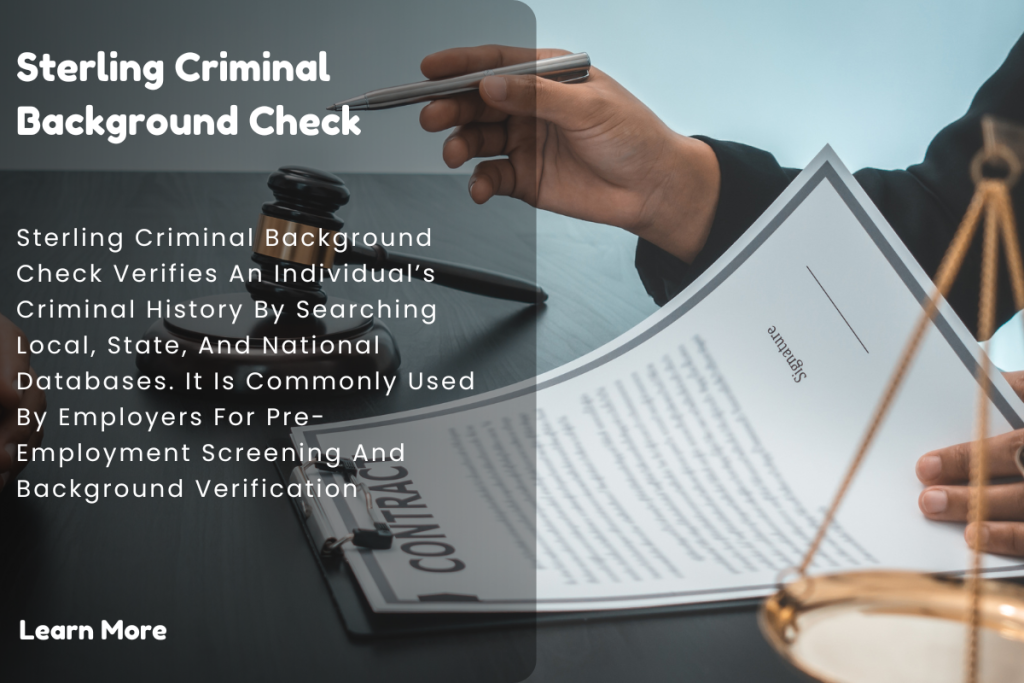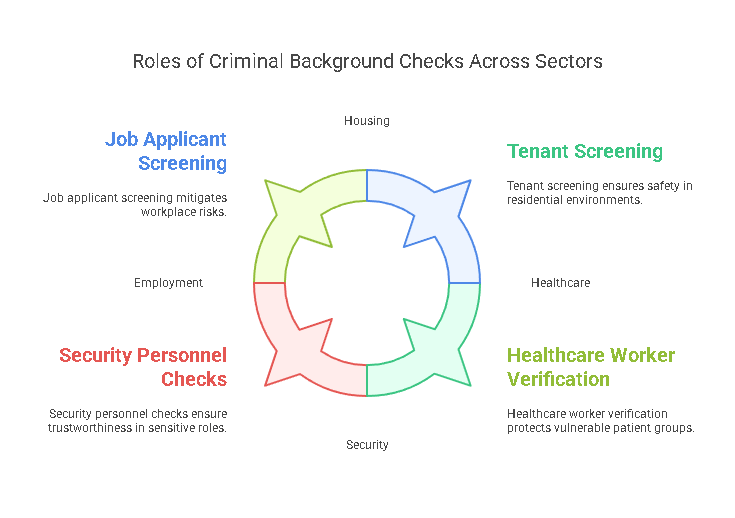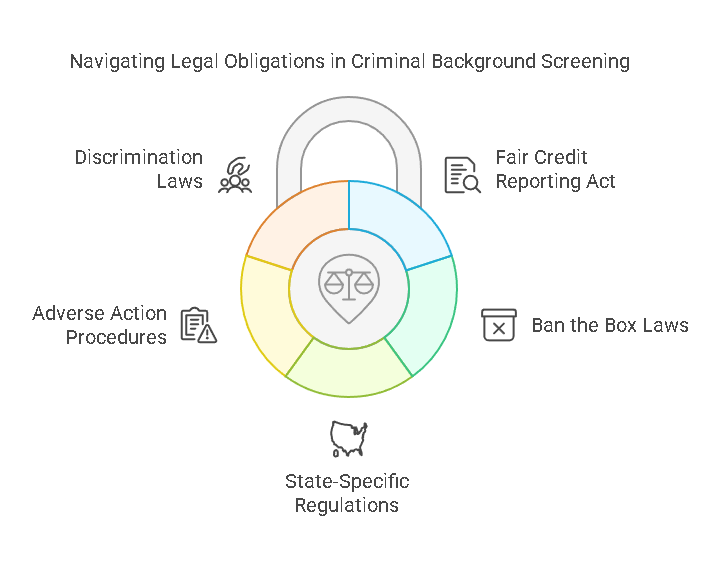The Complete Guide to Sterling Criminal Background Checks

Introduction to Sterling Criminal Background Check
A Sterling Criminal Background Check is a comprehensive tool used by employers, landlords, and other entities to assess an individual’s criminal history. This process is vital in ensuring that businesses and other organizations hire trustworthy employees, select reliable tenants, and safeguard sensitive environments, such as healthcare, finance, and security. By conducting these checks, employers and other parties aim to mitigate the risk of hiring individuals with criminal backgrounds that could pose potential threats to safety, productivity, and integrity.
Sterling: A Leading Provider of Background Check Services
Sterling, a prominent background screening company, is renowned for its efficiency and reliability in delivering a broad range of background check services. Sterling Criminal Background Checks are utilized by various industries to confirm the criminal history of applicants and current employees. Sterling has established itself as a leader in background screening by providing accurate, timely, and legally compliant reports that help organizations make informed decisions.
The role of Sterling in background checks extends beyond just criminal checks. The company offers a variety of screening services, including employment verification, education verification, drug testing, and credit history reports. Sterling’s tools are designed to cater to specific industry requirements, from healthcare and finance to retail and transportation, ensuring that organizations are hiring individuals who meet the legal, ethical, and safety standards necessary for success.
The Importance of Criminal Background Checks in Various Sectors

Criminal background checks play a critical role across many sectors, including:
- Employment: Employers conduct criminal background checks to ensure that potential hires do not have a history that could affect job performance or create risks in the workplace. For example, a company may not hire someone with a history of theft if the individual would be handling sensitive financial data.
- Housing: Landlords frequently run criminal background checks as part of the tenant screening process to ensure the safety and security of other residents. A background check can help prevent issues related to violence, drug activity, or property damage.
- Security: In fields such as security services or law enforcement, conducting criminal background checks is vital. Individuals in these positions need to be highly trustworthy and dependable. Employers in this sector rely on Sterling’s background checks to ensure that all employees are fit for duty.
- Healthcare: Medical facilities and healthcare providers run criminal background checks to verify that prospective employees are not involved in any criminal activities that could compromise patient care. This is particularly critical for positions involving vulnerable populations, such as children and the elderly.
The Sterling Criminal Background Check is an essential part of due diligence, helping organizations verify the truthfulness of an applicant’s background and provide a safer, more secure environment for employees, clients, and residents alike.
How Sterling Criminal Background Checks Work & What’s Included
A Sterling Criminal Background Check is a detailed and thorough process used by employers, landlords, and other institutions to investigate an individual’s criminal history. The results of this check help organizations make informed decisions about hiring, renting, or granting access to sensitive information or environments. Understanding how this background check works, what it includes, and how it is conducted is essential for both organizations and individuals.
How Sterling Criminal Background Checks Work
The process of conducting a Sterling Criminal Background Check typically involves several steps, which ensure the accuracy and legality of the information being gathered. Below is an outline of the general process:
- Authorization and Consent: Before any background check can be performed, the individual in question must provide written consent. This is crucial to comply with federal and state regulations, including the Fair Credit Reporting Act (FCRA). Employers or landlords typically ask for this consent through a signed form.
- Data Collection: Once consent is obtained, the background check process begins by gathering data from multiple sources. Sterling gathers criminal records from county, state, and federal databases, including sex offender registries and court records. It also checks any available arrest records and incarceration histories.
- Analysis of Records: The criminal history is then analyzed to identify any relevant findings. This may include convictions, arrests, warrants, or pending cases. Sterling will cross-check multiple databases to ensure the information is accurate and up-to-date.
- Report Generation: After gathering and analyzing the criminal history data, Sterling compiles a report that is shared with the employer, landlord, or other requesting party. This report will typically include information about the individual’s criminal history, such as the type of offense, the date of conviction, and the jurisdiction in which the crime occurred.
- Review and Decision-Making: Once the background check is complete, the employer or landlord will review the results and make a decision. It is important for employers to consider the nature of the criminal history, the relevance to the job or rental opportunity, and the time that has passed since the offense.
What’s Included in a Sterling Criminal Background Check
Sterling provides a thorough check of various types of criminal history information. Some of the key elements typically included in a Sterling Criminal Background Check are:
| Type of Record | Description |
|---|---|
| County, State, and Federal Criminal Records | Searches local, state, and national criminal databases to provide a comprehensive view of an individual’s criminal history. |
| Sex Offender Registries | Includes checks against national and state sex offender databases to ensure that the individual is not listed as a registered sex offender. |
| Incarceration Records | Includes information on whether the individual has been incarcerated, as well as the nature of the crime and length of the sentence. |
| Arrest Records | Includes records of arrests, including charges and court outcomes, even if there was no conviction. |
| Court Cases | Provides details of any ongoing or previous criminal cases, including information about the case status and outcome. |
| Employment History Verification | Ensures that the individual’s employment history matches the information provided in their application and confirms past job titles and dates of employment. |
The Sterling Criminal Background Check includes both broad and deep searches across various records and jurisdictions, making it a reliable option for employers and organizations looking to screen applicants thoroughly.
The Role of Precisehire in Employment Screening
Precisehire offers services that can complement Sterling’s criminal background check by providing additional background screening and verification solutions. For example, Precisehire provides employment verification, identity checks, and even drug testing as part of a comprehensive hiring process. By working with Precisehire, businesses can ensure that their background check process is thorough and legally compliant.
In addition to providing criminal background checks, Precisehire offers personalized support and consulting to help organizations navigate compliance issues, maintain secure hiring practices, and minimize the risks associated with hiring unqualified or unsuitable candidates. By partnering with companies like Precisehire, organizations can ensure a seamless and reliable background screening process that complies with industry regulations.
Legal Aspects, FAQs, and Conclusion
When it comes to criminal background checks, particularly Sterling Criminal Background Checks, it is essential for employers and organizations to understand the legal requirements, the potential challenges in implementing background checks, and the nuances of how such information can be used in decision-making. This section discusses the legal aspects of conducting criminal background checks, answers frequently asked questions (FAQs), and wraps up with key considerations for employers and other stakeholders.
Legal Aspects of Sterling Criminal Background Checks

The use of criminal background checks is highly regulated by federal and state laws to protect individuals’ rights while also safeguarding organizations from making discriminatory or illegal decisions based on criminal history. Some key legal aspects include:
- Fair Credit Reporting Act (FCRA): Under the FCRA, employers must obtain written consent from the individual being screened before accessing their criminal history. Additionally, the FCRA mandates that employers provide a copy of the background check report to the individual if it results in an adverse decision, such as not hiring them, and allow the individual to dispute any inaccuracies.
- Ban the Box Laws: Many states have passed “Ban the Box” laws, which prohibit employers from asking about criminal history on job applications. These laws are intended to help reduce discrimination against individuals with criminal records, especially in the early stages of the hiring process. Employers must ensure that they comply with these regulations and that criminal history is not considered prematurely.
- State-Specific Regulations: In addition to federal regulations, each state has its own set of rules that govern how criminal background checks should be used, including how far back a background check can look. For instance, some states limit the period during which past criminal convictions can be considered, typically 7 to 10 years.
- Adverse Action Procedures: When an employer decides not to hire an individual based on a criminal background check, they must follow adverse action procedures. This involves notifying the individual of the decision and giving them an opportunity to dispute any inaccuracies before the decision is finalized.
- Discrimination Laws: Employers must be cautious when using criminal background checks to avoid violating discrimination laws. For example, using a criminal record to make a hiring decision can potentially lead to discrimination claims under Title VII of the Civil Rights Act of 1964, particularly if the employer is not careful in assessing whether the criminal record is relevant to the job in question.
Frequently Asked Questions (FAQs) About Sterling Criminal Background Checks
How long does a criminal background check take with Sterling?
Sterling criminal background checks typically take between 1 to 5 business days to complete, depending on the complexity of the check and the jurisdictions involved. Factors such as the need for manual verification or additional checks can affect the timeline.
What is included in a Sterling criminal background check?
A Sterling Criminal Background Check includes county, state, and federal criminal records, sex offender registry checks, incarceration records, arrest records, and court case details. It may also include employment verification if required by the employer.
Can an employer deny employment based on a criminal record?
Yes, an employer can deny employment based on a criminal record, but only if the criminal history is directly relevant to the position. Employers must follow adverse action procedures and ensure that their decision is compliant with discrimination laws. Employers should also consider the nature of the crime, the time elapsed since the offense, and how it relates to the job duties.
How far back does Sterling look for criminal history?
Sterling generally looks for criminal records dating back up to 7 years, although this can vary depending on the jurisdiction and type of offense. Employers should be aware of state-specific regulations regarding how far back a background check can go.
Are there any legal restrictions on using criminal background checks in hiring decisions?
Yes, there are legal restrictions, especially under Ban the Box laws and the FCRA. Employers must also ensure they do not make hiring decisions based on race, gender, or national origin in violation of discrimination laws. Criminal history should be considered only when it is relevant to the job duties.
Conclusion
Criminal background checks, such as those conducted by Sterling, are essential tools for ensuring safe, secure, and legally compliant hiring practices. Whether you are screening potential employees or assessing tenants, understanding how these checks work, what they include, and the legal considerations involved is crucial for making informed decisions. Organizations must ensure they are compliant with both federal and state regulations to avoid legal issues and discrimination claims.
Using services like Precisehire, which offers comprehensive background screening and verification services, can help businesses navigate the complexities of criminal background checks and ensure that their hiring practices are both effective and compliant. By staying up-to-date with legal requirements and implementing proper background check procedures, businesses can protect themselves and make better hiring decisions.
